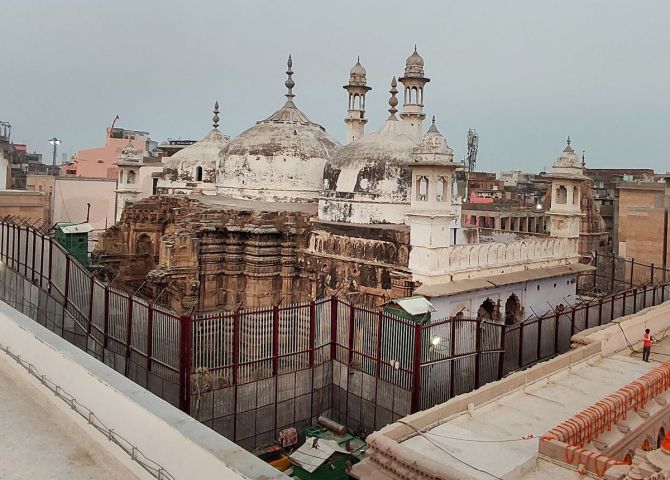In a significant press conference, leaders from six prominent Muslim bodies denied the existence of a temple at the site of Gyanvapi Masjid in Varanasi. The leaders expressed their disappointment with lower-level courts for not upholding the Places of Worship Act, accusing the Executive of testing the patience of Muslim youth. The Muslim leaders emphasized that there was no temple where the masjid stands today and asserted that Islam does not permit the destruction of another place of worship to build a mosque.
Khalid Saifullah Rehmani, the president of the All India Muslim Personal Law Board, stated, “What we are seeing today is an attempt to destroy Hindu-Muslim relations in the name of temple-mosque. For centuries Hindu temples have stood here. They were not disturbed by Muslim rulers.” The leaders condemned the abrupt initiation of pooja (worship) in a cellar of Gyanvapi mosque, expressing concern about possible collusion between the administration and the plaintiff, hindering any efforts by the Masjid Managing Committee to pursue remedies against the district court’s order.
Arshad Madani, president of Jamiat Ulama-I-Hind, raised concerns about an increasing number of petitions filed in various courts seeking a change in the character of Muslim places of worship since the Babri Masjid verdict in November 2019. He highlighted the potential repetition of the Babri Masjid saga, expressing doubt about the judiciary’s faith in facts over faith.
Malik Mohtasim Khan, vice-president of Jamaat-e-Islami Hind, expressed frustration at the judiciary’s inability to uphold the 1991 Places of Worship Act and criticized the speed of the administration and bureaucracy in fulfilling the court’s directives. He raised concerns about the judiciary becoming a “majoritarian judiciary” and questioned where justice could be found if the courts appear biased.
The leaders emphasized their commitment to advising the Muslim community to remain patient and have faith in the judiciary. However, they expressed growing apprehension and disappointment, suggesting that their faith in the judiciary might be wearing thin. The conference brought together leaders from prominent Muslim organizations, including the All India Muslim Personal Law Board, Jamiat Ulama-i-Hind, Jamaat-e-Islami Hind, and Jamiat Ahl-e-Hadith Hind, along with renowned clerics.






